New Delhi: Asiya Bibi and her family were living under a thick tarpaulin sheet in extreme weather conditions after civic authorities tore down their house in north Delhi’s Jahangirpuri more than two years ago following communal violence in the area.
The family finally managed to begin rebuilding their house with a loan of Rs 1 lakh this year, and her husband has restarted his grocery shop business, but their troubles are far from over.
Asiya’s family is among the dozens of other Muslims who bore the brunt of the demolition drive in Jahangirpuri and have only now begun to pick up the pieces. They still struggle to make ends meet.
Many are also haunted by traumatic memories of the demolition of their homes and live in constant fear of a repeat of the past.
“They looted things from our shop worth at least Rs 1.5 lakh. Now, we are selling groceries on the roadside because we don’t have money to reconstruct our shops but the police harass us and ask us to move from there as well,” 34-year-old-old Asiya told ThePrint, sitting in a dark room with a small bed and a makeshift kitchen.
Asiya’s home and grocery shop were demolished on 20 April, 2022, four days after a shobha yatra on Hanuman Jayanti sparked an altercation between Hindus and Muslims that ended in violent riots. Her three brothers were in jail for eight months after that.
She and her neighbours said that over 20 houses and many shops were demolished, leaving many from the community homeless and without a source of livelihood.
“We covered our house with tarpaulins to provide our women at least some privacy. Drunk men roaming around in the street would enter our house in the middle of the night,” said Asiya.
“The biggest problem was that my brothers remained in Tihar jail for at least eight months. We had to fend for ourselves and our old parents who were left on their own after their arrest on the night of 16 April,” added Asiya, pointing to her mother Aniqa Bibi. Her mother, she said, has completely stopped since the violence.
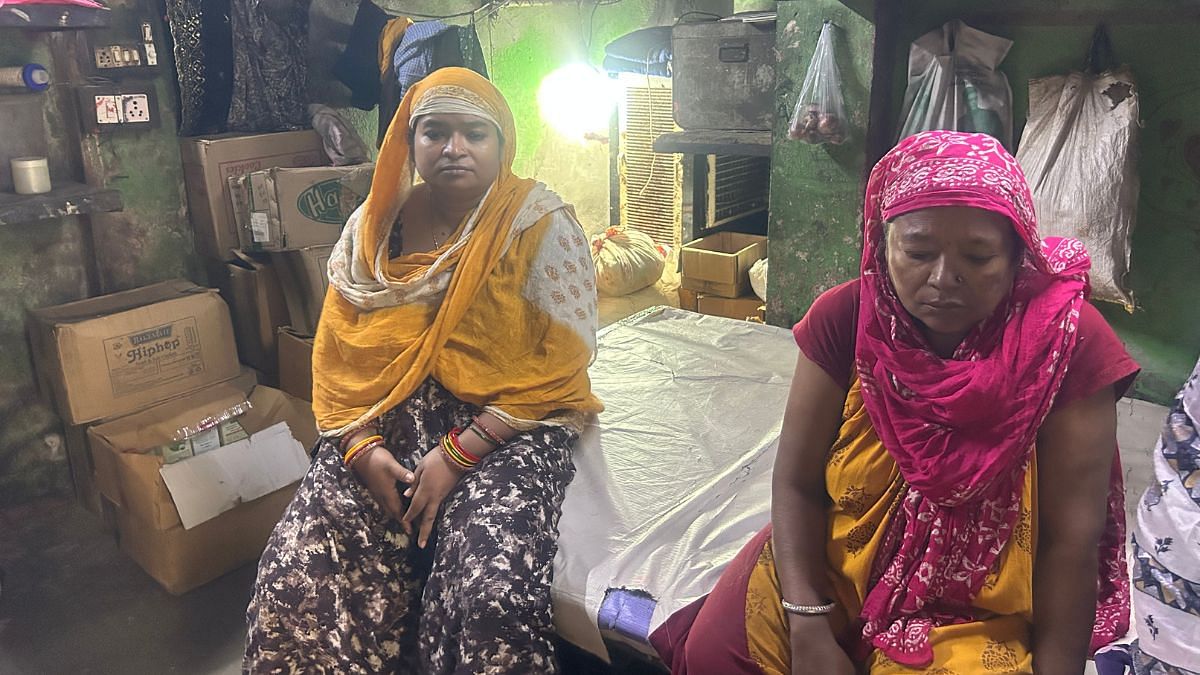
Condemnation of bulldozer demolitions has been widespread.
The Supreme Court has come down heavily on bulldozer action across the country following reports of the demolition of several houses and shops of minorities in states such as Uttar Pradesh, Madhya Pradesh, Delhi, Haryana and Maharashtra.
The top court Tuesday extended its earlier 17 September ban on authorities from demolishing properties of those suspected of criminal activities, without first seeking the court’s permission.
The only exception was in cases involving encroachments on public roads, footpaths, railway lines or water bodies.
SC said earlier bulldozers were being used as a punitive tool and were against the ethos of the Constitution. It reserved its order on laying down pan-India guidelines on “bulldozer justice”, clarifying that any guidelines it laid down would apply to all institutions and individuals and not just a particular community.
The demolition of unauthorised constructions had to be based on law and not religion, faith or belief, the SC added.
“We are a secular country and our directions will be for all irrespective of religion or community,” said a bench of Justices B.R. Gavai and K.V. Vishwanathan.
“We do not want to save any illegal construction. If there is any religious structure in the middle of the road, be it a gurdwara or dargah or temple, it cannot obstruct the public.”
Lingering trauma
Dozens of people in their neighbourhood in Jahangirpuri—a resettlement colony home to mostly Bengali-speaking Muslims from West Bengal, Assam, Bihar and areas near the Bangladesh border—live in constant fear of being targeted again because of their Muslim identity.
“This morning, a Delhi Development Authority (DDA) official was standing here and pointing toward us. We are afraid that they might be planning to bulldoze our lives once again,” said Gulrez Khan, Asiya Bibi’s neighbour and a mechanic whose shop was demolished along with the front wall of a mosque on the day of the violence.
“This happened to us once, it can happen again anytime,” he said, while other shopkeepers nodded in agreement.
Khan has finally started his business again but he has taken to sitting outside his shop—to keep an eye out for “sudden demolitions”.
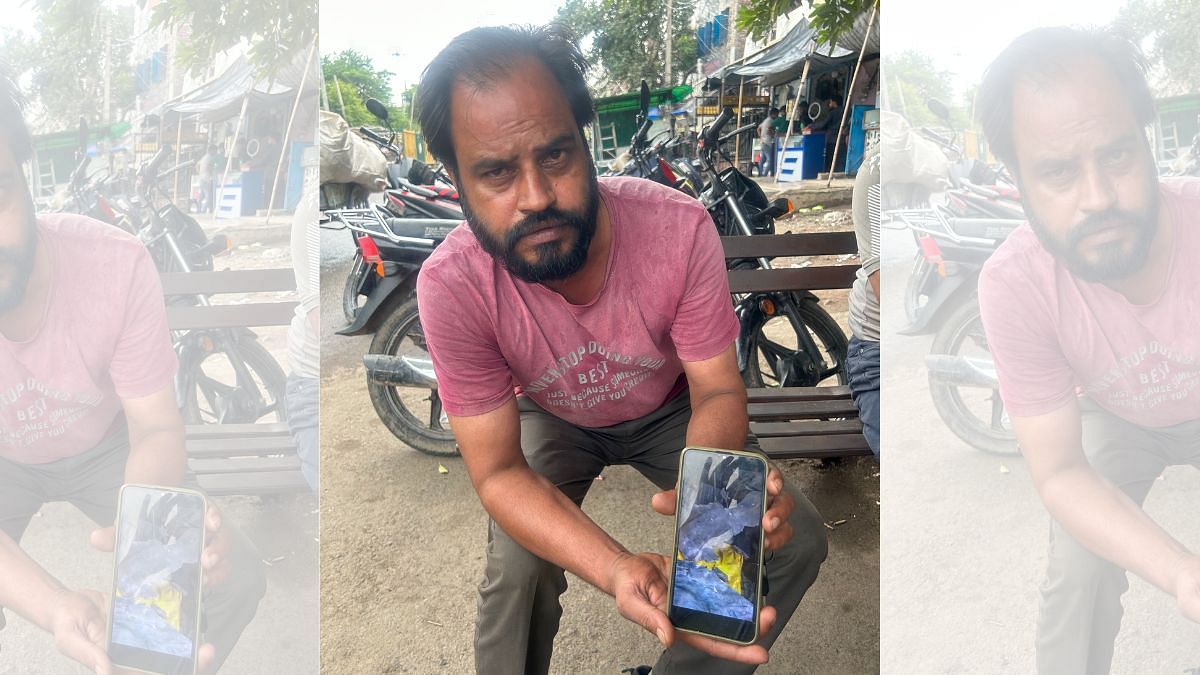
Khan added that Jahangirpuri had now become a “red zone” where their community is targeted during religious processions or violence.
Why haven’t the people from the Muslim community in Jahangirpuri who have lost their homes filed a court case?
Community members said they could hardly afford to fight a case that would linger for years when they barely had the money for basic survival.

“Our lives are hard but we are proud of our religion. No matter how badly they treat us, it won’t deter our belief,” said Asiya.
A demolition spree
In many parts of the country, state governments have been using ‘bulldozer justice’, where the properties of those accused of crimes are destroyed without following the due legal process.
Over the past 2 years, there have been several instances of homes and shops having been razed by bulldozers in Madhya Pradesh, Assam and Gujarat, following disputes involving the residents or property owners.
An Amnesty International report published this year documented 128 “targeted demolitions” between April and June 2022 in Assam, Delhi, Gujarat, Madhya Pradesh and Uttar Pradesh that, it said, left more than 600 people either homeless or without a livelihood.
It said that they were “instigated by senior political leaders and government officials”, and affected 617 people.
“In all five states, the demolitions took place soon after protests were held by Muslims calling for accountability on the part of the state governments, or after communal violence broke out between Hindus and Muslims during religious processions.”
Uttar Pradesh under Chief Minister Yogi Adityanath was perhaps the first one to use bulldozers as a way of providing instant justice, which earned him the name of “Bulldozer Baba”.
During his first term, Adityanath registered cases against around 15,000 people under the Uttar Pradesh Gangsters and Anti-Social Activities (Prevention) Act and demolished “illegally constructed” houses of several accused to control “lawlessness” in the state.
Over the years, BJP governments in other states followed in Yogi’s footsteps.
Analysts say Muslim houses are selectively targeted for “bulldozer” justice.
Aasif Mujtaba, a human-rights activist and the founder of Miles2Smile, a non-profit working for the welfare of victims of communal violence in India, told ThePrint that the term “bulldozer justice” is wrong as the bulldozer action in India has been a “gross misuse of executive power and injustice done toward the minorities”.
“Bulldozer justice has been a form of collective punishment. Be it Khargone in Madhya Pradesh, Jahangirpuri in Delhi, Himmatnagar in Gujarat, or Mewat in Haryana, they were all followed by some kind of violence where Muslims protested due to some provocative comments. As a result, Muslim houses were selectively targeted,” he said.
In its report, Amnesty International condemned the demolition of Muslim properties in the five states using JCB-branded bulldozers in at least two instances.
Agnès Callamard, Secretary General of Amnesty International, called the demolitions of Muslim properties by authorities “cruel and appalling”.
“Such displacement and dispossession is deeply unjust, unlawful and discriminatory. They are destroying families— and must stop immediately,” she said.
But the condemnation hasn’t stopped the demolitions.
Last month, a Muslim leader’s home in Madhya Pradesh’s Chhatarpur was torn down following a violent protest in the area.
In an earlier instance of “bulldozer justice” in June, six properties owned by people named in two police complaints in Moradabad and Bareilly district were demolished. One was in connection with a shootout and the other was related to a kidnapping attempt.
According to Housing and Land Rights Network (HLRN) data, the number of evictions due to demolitions has been increasing over the past few years.
According to a 2024 estimate by HLRN, authorities at the local, state and central levels demolished 1,53,820 homes in 2022 and 2023, resulting in the forced eviction of more than 7,38,438 people across rural and urban areas.
From 2017 to 2023, the number of evictions rose from 1,07,625 in 2019 to 2,22,686 in 2022, and a staggering 5,15,752 in 2023.
‘Government’s tanashahi’
The demolition drive in Delhi’s Jahangirpuri came after the Bharatiya Janata party’s (BJP) Delhi unit chief Adesh Gupta asked the north Delhi civic body to bulldoze encroachments of “anti-social elements” in the area.
Most of those who lost their homes and shops in NDMC’s drive were Muslims. But there were exceptions, too. Ganesh Kumar Gupta, a 55-year-old Hindu resident of Jahangirpuri, also lost his shop during the demolitions.
A BJP supporter for years, Gupta lost his juice shop his family had built in 1978 after the land was allotted to them by DDA.
“I was at home on 16 April when the violence happened. I had not imagined that my shop would be demolished,” he said.
“All the roads had been blocked. I had to cross several barricades before I finally reached here. They had already started the demolition. I begged them to see my papers but nobody heard my voice.”
Gupta rebuilt his shop a few months after the demolition but says he’s now saddled with a loan of about Rs 5 lakh that he took from family and friends.
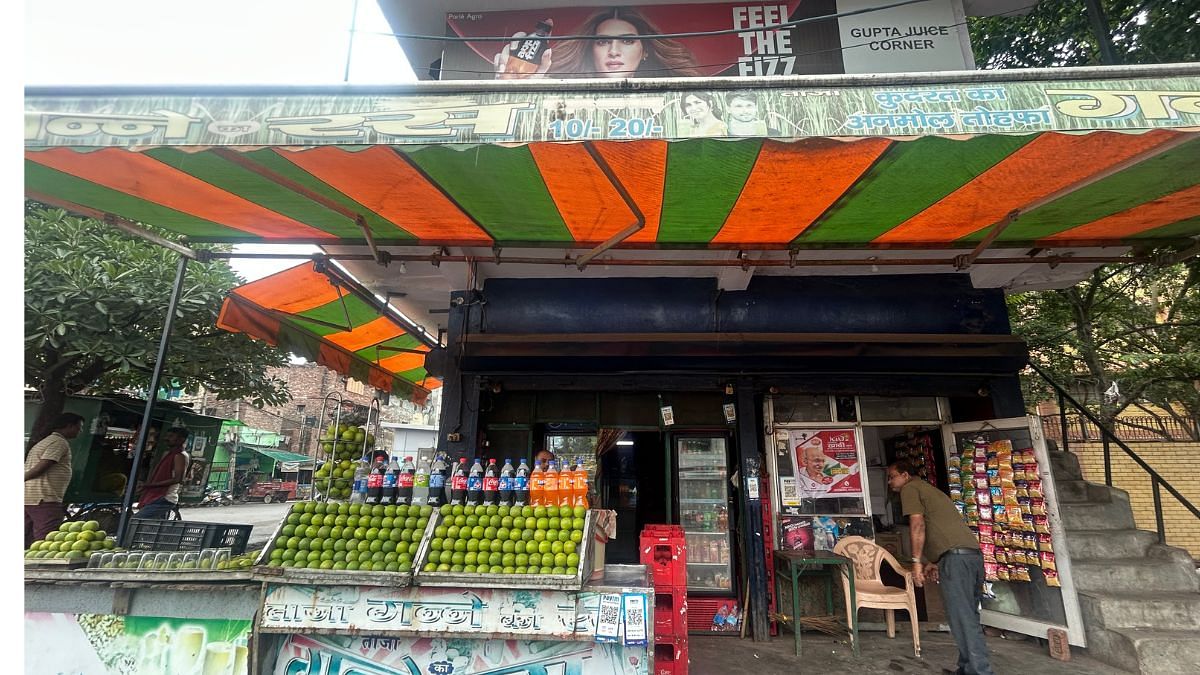
He said in the beginning political leaders promised to provide him financial help, but eventually he had to do it all on his own.
Gupta is currently fighting a case against the authorities in the Delhi High Court, but he believes that justice might never come.
“This is the government’s tanashahi [authoritarianism]. If this can happen to a supporter like me, it can happen to anyone,” he said, sitting outside his newly constructed juice shop.

Anas Tanwir, Advocate on Record in the Supreme Court and Founder of the Indian Civil Liberties Union (ICLU), who is fighting Gupta’s case, said that ‘bulldozer justice’ started in Uttar Pradesh as a form of punishment.
“The official statement has always been that these are illegal structures that are being demolished. But this has been celebrated and used by the political party [BJP] in power and its supporters,” he said.
“The country that is ruled by the rule of law, holds the law sacred. When the government says that it can demolish the houses of the accused, the government is violating the law. It is unfortunate because the government is not supposed to be criminal,” he said.
Gupta’s case, said Tanwir, is still pending with no effective hearing since 2022.
“Our case is very simple. He has paid the taxes, and the shop was allotted to him. He pleaded to the officials to look at his documents but they did not,” he said.
Parveen Swaroop, Advocate on Record in the Supreme Court for NDMC, said the Gupta had encroached on public land and NDMC had sent him a notice regarding the demolition. He added that the demolition was carried out under the order of the high court.
“The demolition was carried out under the order of the high court. So all the encroachments that are not permissible under the law were removed. They are trying to give it a religious colour,” he said.
Living in fear
Despite widespread condemnation, the demolition of homes, particularly of Muslims, continues.
Last year in July, authorities launched a five-day demolition drive of shops and houses in predominantly-Muslim Nuh after communal violence broke out during a religious procession by the Vishva Hindu Parishad (VHP) and the Bajrang Dal.
Six people died and scores were injured in the violence that spread across the district and into neighbouring Gurgaon.
Among the victims was Nuh resident Aas Ahmed whose house was demolished on the afternoon of 4 August, 2023. He said that he and other members of the community were serving shikanji to the Hindu community members in the procession.
Suddenly, violence started and within minutes, the whole community was attacked.
A few days later, Ahmed said he and other residents received a notice that their houses would be demolished due to encroachments. His house was razed half an hour later.
“My mother begged them to stop. They asked her to move aside otherwise they would bury her under the rubble,” said Ahmed. “My brother and I had two houses that we had built back in 1995 and a shop. It’s all gone now.”
A year later, Ahmed and his family of eight live in a small house they built after the community pooled in some money.
“We are constantly scared that this might happen to us again. We are scared that we might lose our homes again,” he said.
Ahmed isn’t alone. On 28 February, DDA demolished the house of one of the Uttarakhand tunnel rescuers, Vakeel Hasan.
Authorities said the demolition was aimed at removing encroachment from its acquired land in northeast Delhi’s Khajuri Khas.
However, Hasan—who led a group of workers who saved 41 workers from the collapsed Silkyara tunnel in Uttarakhand last November—believes his house was targeted because of his Muslim identity.
Hasan had gone out when he received a call from his children that police had barged into their home and were asking them to leave.
Within minutes, the house that Hasan built over the years with a loan of Rs 12 lakh was razed to the ground.
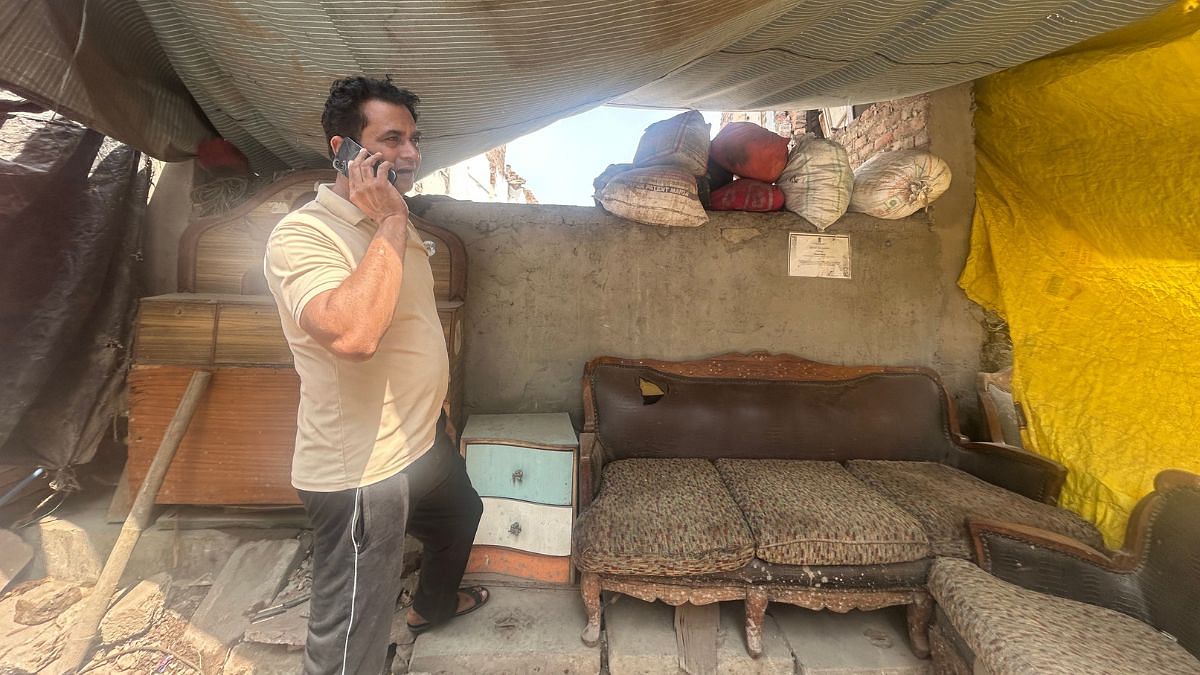
For months after the demolition, he lived under a tarpaulin sheet on the rubble of his house until they finally moved to a rented house in the same neighbourhood.
“(North East Delhi MP) Manoj Tiwari came to meet us. He said that the demolition was illogical and that our house would be reconstructed but we have received no compensation till now,” he said, sitting in his one-room rented house.
“They are behaving as if we don’t belong to this country. We have to prove that we are Indians,” he added.
Human rights activist Mujtaba said most of the people from the Muslim community whose houses and businesses had been demolished over the years belong to lower-income backgrounds and have been pushed further into the depths of poverty.
He suggested that the SC ensures that no bulldozer action takes place on communal grounds.
“They have been pushed against the wall by bulldozer action. For a lot of them, recovery has been impossible,” he said.
(Edited by Sugita Katyal)
Also read: From demolition to campaign, bulldozers become pan-party tool to pull in crowds



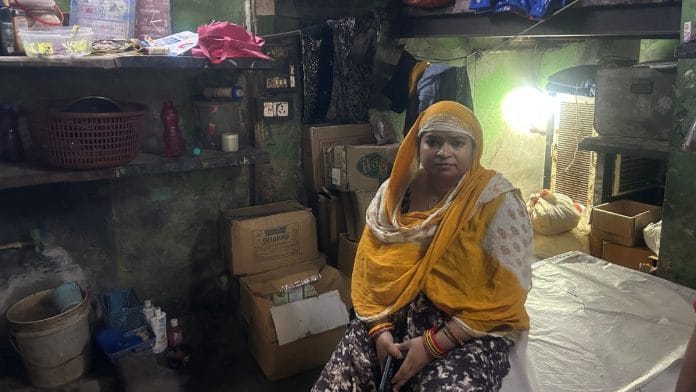



The purpose of punishment is deterrence. It is often born from the fear of the criminals who are punished. Zenaira would rather have Muslims rewarded even if they commit crimes, only because they are minorities
In a country where courts often take 30 to 40 years to deliver a verdict, bulldozer justice is inevitable.
If the Indian judiciary delivered on it’s promise of justice, things would not have come to such a head.